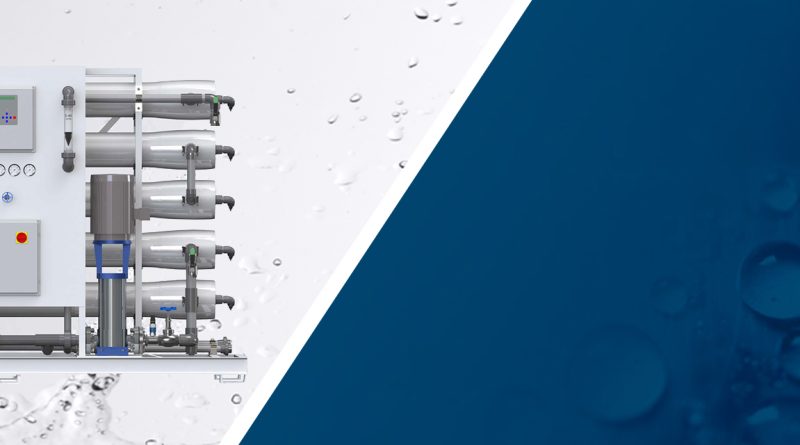Top 5 Benefits of Using Industrial Water Filtration Systems
Understanding the Concept of Industrial Water Filtration
Industrial water filtration is an integral process that allows businesses across various sectors to ensure the quality of water used in their operations. This system typically employs sophisticated techniques to remove unwanted particles and contaminants from water, including microorganisms, minerals, and even certain types of chemical pollutants. The central purpose is to create a safer, cleaner supply of water for use in various industrial applications.
Several types of filtration systems exist, each specifically designed to target and remove distinct types of contaminants. For instance, mechanical filters trap physical particles, bio-filters eliminate harmful microbes, while chemical and oxidation filters are used to neutralize or remove toxic substances. The choice of the filtration system often depends on the specific requirements of the industry, the nature of contaminants present, and the desired water quality. The common motive across all these systems is to enhance water quality, ensure health and safety standards, and promote environmental sustainability.
The Role of Industrial Water Filtration in Business Operations
Industrial water filtration systems perform a crucial role in different business operations. They are implemented in a wide range of industries – from food and beverage to pharmaceutical, chemical, and automotive sectors. These advanced systems effectively remove impurities from water used in different processes, providing a clean, usable resource critical for various industrial applications.
The reliance of industries on these water filtration systems isn’t just about fulfilling an operational requirement; it’s also about maintaining the consistency and quality of products. For example, in food and beverage production, water purity directly impacts the taste and safety of the final product. Similarly, in pharmaceuticals, particulate-free water is necessary to prevent contamination during drug manufacturing. Thus, the role of industrial water filtration systems is paramount to the successful and efficient operation of many businesses.
How Industrial Water Filtration Enhances Water Quality
Industrial water filtration plays important role in improving water quality. This happens through several procedures that get rid of unwanted elements and contaminants from the water. The process includes coagulation, flocculation, sedimentation, filtration and disinfection. Each step works collectively to eradicate elements such as parasites, viruses, algae, fungi, bacteria, and minerals, which makes the water impure and unsafe for use. Industrial water filtration ensures that these harmful substances are effectively eliminated.
Removing hazardous substances, the filtration system also plays an integral role in reducing the hardness of the water by removing minerals like calcium and magnesium. This not only enhances water quality but also prevents issues related to hard water in industrial applications, such as scale build-up in pipes and machinery. By enhancing the water quality, industrial water filtration systems contribute to the functionality and durability of industrial equipment. Therefore, industrial water filtration plays a crucial role in optimizing business operations.
Industrial Water Filtration Systems and Their Impact on Health and Safety
Industrial water filtration systems play a pivotal role in protecting the health and safety of both the workforce and the community at large. These systems work by removing harmful contaminants such as bacteria, algae, viruses, fungi, and minerals like iron and sulfur from the industrial water supply. By doing so, the chances of waterborne diseases and other health-related issues decrease dramatically. It ensures that industries are disposing of cleaner, safer water into the environment, thus protecting local ecosystems and wildlife.
These filtration systems also contribute significantly to the overall safety within the industrial environment. They contribute to maintaining the cleanliness and quality of the water used in various processes, reducing risks associated with machinery operation. For instance, clean water is essential in preventing rust and corrosion in equipment, thereby reducing breakage which could potentially cause accidents. Ultimately, the presence of industrial water filtration system serves to uphold and enhance standards of health and safety in the industrial sector.
Cost-Effectiveness of Industrial Water Filtration Systems
While the initial investment in industrial water filtration systems may seem formidable, a closer look at long-term costs paints a different picture. These systems reduce the need for expensive repairs and maintenance of water-utilizing equipment within an industrial setting. They help in increasing the lifespan of machinery, thereby decreasing the frequency of costly replacements. These systems can significantly reduce financial losses stemming from downtime, as properly filtered water ensures smoother, more efficient operations.
Industrial water filtration systems can help businesses avoid hefty fines and legal fees associated with non-compliance of environmental regulations. With stronger policies being put in place to preserve water quality, industries are required to meet stricter effluence standards. The use of these filtration systems can help businesses stay in line with these mandates while simultaneously diminishing the cost of waste management. Thus, despite the initial investment, it is evident that industrial water filtration systems yield considerable economic benefits in the long run.
Environmental Impact and Sustainability of Industrial Water Filtration Systems
Industrial water filtration systems play a significant role in promoting environmental sustainability. This is primarily because these systems effectively minimize the discharge of pollutants into the environment, considerably reducing a company’s environmental footprint. These filtration systems ensure that the water released back into the ecosystem undergoes thorough treatment, eliminating harmful substances and thus protecting aquatic life from contamination.
By reclaiming and reusing water, industrial water filtration systems contribute significantly to water conservation efforts, a critical aspect of environmental sustainability in an increasingly water-scarce world. By recycling water, industries can drastically decrease their freshwater consumption, relieving some of the pressure on our precious water resources. These systems tend to require less energy than conventional water treatment methods, making them a more sustainable choice in terms of energy consumption as well.
more : thehealthnews24




